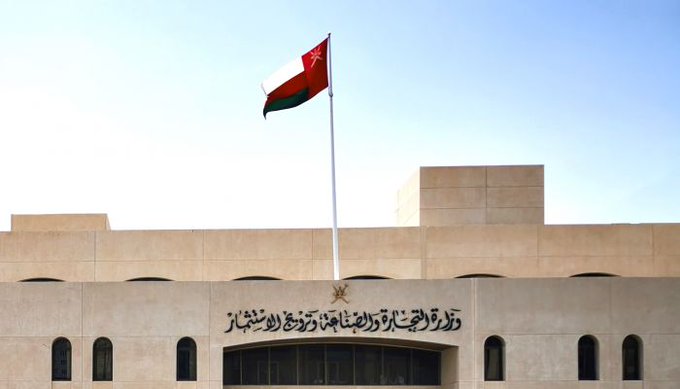

Muscat: A Ministerial Decision No. 250/2023 was issued by the Ministry of Commerce, Industry and Investment Promotion MoCIIP specifying the fee for restructuring requests for the debtor merchant, at an amount of OMR10.
The decision shall be effective from the day following its publishing date in the Official Gazette.
The ministry emphasised that the bankruptcy law in the Sultanate of Oman contributes to empowering the debtor merchant and helping him to get out of the stage of financial and administrative turmoil after paying off the debts, through a plan to restructure his/her financial situation.
The ministry pointed out that, the law aims at regulating the collective collection of the money of the debtor merchant who has stopped paying the commercial debts on time, taking into account the rights of creditors when fulfilling them fairly, and protecting them from whatever prejudice may affect them, to shorten the litigation periods in the lawsuits arising about bankruptcy and facilitating procedures thereon.
The importance of issuing the bankruptcy law also lies in enhancing the confidence of local and international investors, strengthening the economy forward, and enabling the financial reorganisation of troubled establishments, to overcome the stage of financial failure and pay off debts and obligations, without disrupting the wheel of production.
Asila bint Salem bin Abdullah Al-Hussainiya, Head of the Commercial Establishments Control Department at the Ministry of Commerce, Industry and Investment Promotion, said: “The bankruptcy law was issued by Royal Decree No. 53/2019 on 7th July 2020, thus this law annulled Book Five of the Commercial Law issued by Royal Decree No. 55/90.”
She pointed out that, the law included a set of rules and provisions regulating the declaration of bankruptcy of the merchant and the preceding preventive stages that would help him /her to get out of the stage of financial and administrative turmoil, after paying debts and reconciling with creditors following the restructuring plan organised by the legislator and the undertaken settlement process.
The conciliation judge between the debtor merchant and the creditors to avoid declaring bankruptcy based on a request submitted by the debtor merchant in what is called (protective composition).
Asila Al-Hussainiya clarified that the provisions of the bankruptcy law apply to everyone who carries out a commercial business in hisher name and has the necessary capacity, and takes transactions as a profession, as well as every commercial company, a foreign merchant who has a branch or agency in the Sultanate of Oman and has not been sentenced to declare bankruptcy in a foreign country. The institutions licensed by the Central Bank of Oman (CBO) and the insurance companies are exceptionable in the implementation of the provisions of this law.
She also said, “The bankruptcy law defines corporate restructuring as the procedures that would help the debtor merchant to get out of the stage of financial and administrative turmoil to pay off debts, while the Omani legislator introduced this action in this law as the matter has become necessary in light of the economic fluctuations that occur overnight.”
She pointed out that, the law granted the right to the merchant who stopped paying debts, an opportunity to return to get up again, where allowing for the debtor to utilise the restructuring system, as restructuring is a means of agreement aims at achieving a balance between the interests of the debtor-merchant and creditors to ensure the work of the troubled company and the creditors’ access on their due money.
She stressed that the restructuring takes place in various ways, including, reaching an agreement to grant a long grace period for the debtor to pay debts, forgive a part of debts, or both ways.
Al-Husseiniyah added: The legislator set objective and formal conditions that must be met to approve the restructuring request. The objective conditions include the continuation of the debtor merchant in practising hisher commercial business on an ongoing basis during the two years preceding the submission of the application and not committing any fraud.
The formal conditions include, submitting the application to the Commercial Establishments Control Department in the Directorate General of Commerce at the Ministry of Commerce, Industry and Investment Promotion, within six months from the date of the disruption of the business of the debtor, providing final judgment declaring his bankruptcy has not been issued against him or a judgment has been issued to start protective composition procedures. It also includes that, the company is not in the process of liquidation when applying.
The legislator also permitted the heirs of the debtor merchant, during the year following his death, to submit a request to restructure the merchant activity with the consent of all the heirs. The legislator stressed that the request for restructuring should include the reasons for the financial and administrative turmoil, the date of its origin, and the measures taken in this regard to avoid its occurrence or address its effects.
The applicant of restructuring must include solutions proposals in the request and procedures that can help him and are necessary to get out of this financial turmoil, while the debtor merchant must continue to manage his money in the stage of implementing the restructuring plan, and remains responsible for the obligations or contracts that arise from it, prior or after the date of approving the restructuring plan, in a manner that does not contradict this plan.
The applicant must not perform any of the actions that affect the interests of the creditors, such as selling that is not related to the practice of normal trade business, donating, borrowing or lending, or any of the acts of donation, guarantees and mortgage, or any of the similar acts in violation of the restructuring plan.